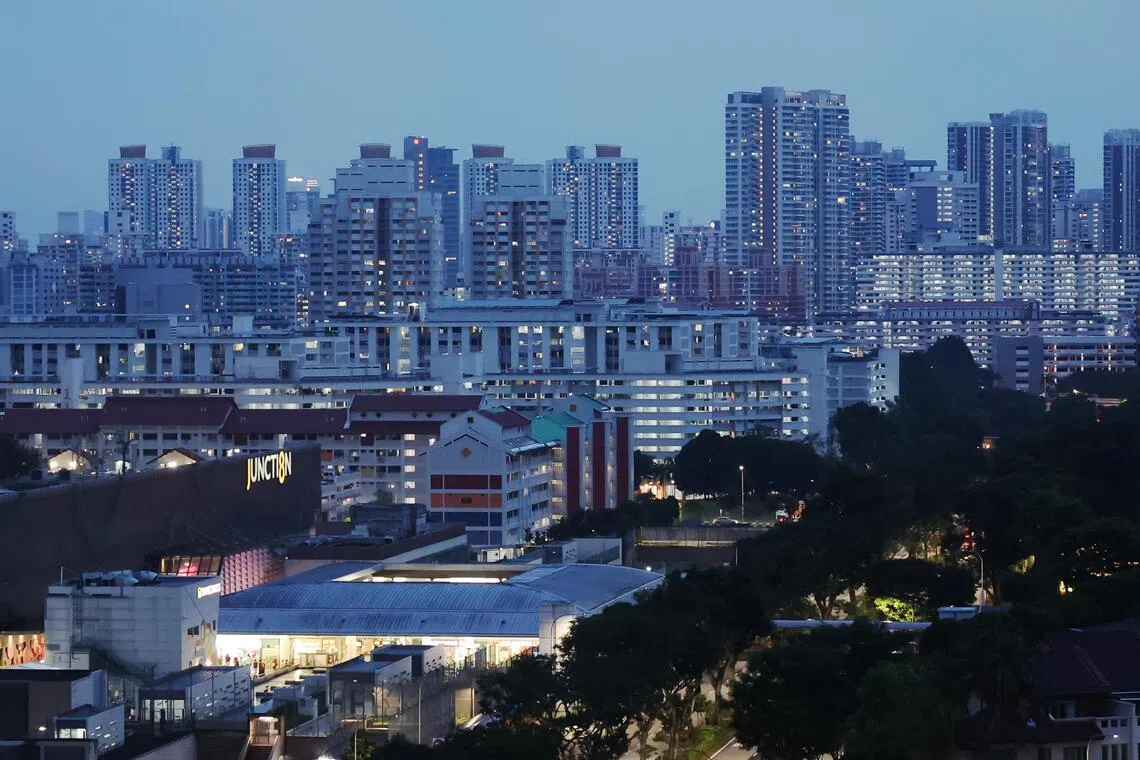New dedicated nuclear teams at EMA, NEA part of efforts to help S’pore make call on nuclear energy
Sign up now: Get ST's newsletters delivered to your inbox

Singapore has yet to make a decision on whether it would use nuclear energy.
ST PHOTO: BRIAN TEO
Follow topic:
SINGAPORE – Dedicated nuclear teams have been created at the Energy Market Authority (EMA) and the National Environment Agency (NEA) following a reorganisation exercise, The Straits Times has learnt.
This comes after Prime Minister Lawrence Wong said in his Budget 2025 speech
Singapore has yet to make a decision on whether it will use nuclear energy.
In response to ST queries, the EMA and NEA said in a joint statement that EMA has formed a dedicated nuclear energy team to assess the feasibility of deploying advanced nuclear energy technologies for power generation in Singapore.
The EMA has, among other things, conducted site visits to countries such as the US, Switzerland and France to build understanding of nuclear energy, and called for studies on advanced nuclear technologies, such as small modular reactors (SMRs).
Meanwhile, as the radiation and nuclear safety regulator, NEA has established a nuclear safety team to deepen expertise in nuclear safety, security and safeguards.
For instance, NEA maintains an ambient radiation monitoring programme in Singapore, which includes a network of 40 air and water radiation monitoring stations deployed across the country which are equipped to measure a range of radiological parameters, such as radionuclide concentrations in the environment.
“These focused efforts by government agencies will help Singapore make an informed decision on the feasibility of nuclear energy,” said the two agencies.
In his Budget speech, PM Wong had noted that interest in nuclear energy is increasing worldwide, with several countries within the region planning to include nuclear sources in their energy mix.
He also said that Singapore will need new capabilities to evaluate options and consider if there is a solution that the island-state can deploy in a safe, cost-effective way.
Five Asean countries – Vietnam, Indonesia, the Philippines, Malaysia and Thailand – have said they are either studying the feasibility of advanced nuclear technology to meet their growing energy needs, or already have plans to build reactors in the coming decades.
With limitations in accessing renewable energy, nuclear energy is among various low-carbon sources that resource-scarce Singapore is looking into amid considerations of the nation’s energy security, affordability and the carbon footprint.
Low-carbon energy sources will also contribute to Singapore’s goal of reaching net-zero emissions by 2050. The nation’s current fossil fuel-based energy sector contributes about 40 per cent to the country’s total emissions.
An earlier feasibility study in 2012 had shown that nuclear technologies of that time were unsuitable for Singapore. But advanced technologies, in particular SMRs, are making this energy source safer.
A separate report commissioned by the EMA a decade later in 2022 pointed out that emerging energy technologies, including nuclear and geothermal, could potentially supply around 10 per cent of Singapore’s energy needs by 2050.
Several developments have taken place in Singapore since then, including the appointment of consultancy firm
Singapore has also signed agreements with other countries, such as the US and France, to learn about nuclear technologies and scientific research.
A nuclear research and safety institute was launched in July
Dr Victor Nian, founding co-chairman of independent think-tank Centre for Strategic Energy and Resources, said that while Singapore has yet to make a decision to deploy nuclear energy, the country is assessing its suitability and readying itself for its potential use.
“Thus, there is a need to build a dedicated and competent ‘promoter’ and ‘regulator’ of nuclear energy, which is a common practice in many leading nuclear states,” he said.
He said that the EMA would be the “promoter”, keeping abreast of nuclear power technologies.
NEA would take on the role of “regulator” to ensure safety, security and safeguards.
This will help to ensure that potential nuclear development in Singapore will conform to all relevant codes and standards and international best practices, Dr Nian added.


